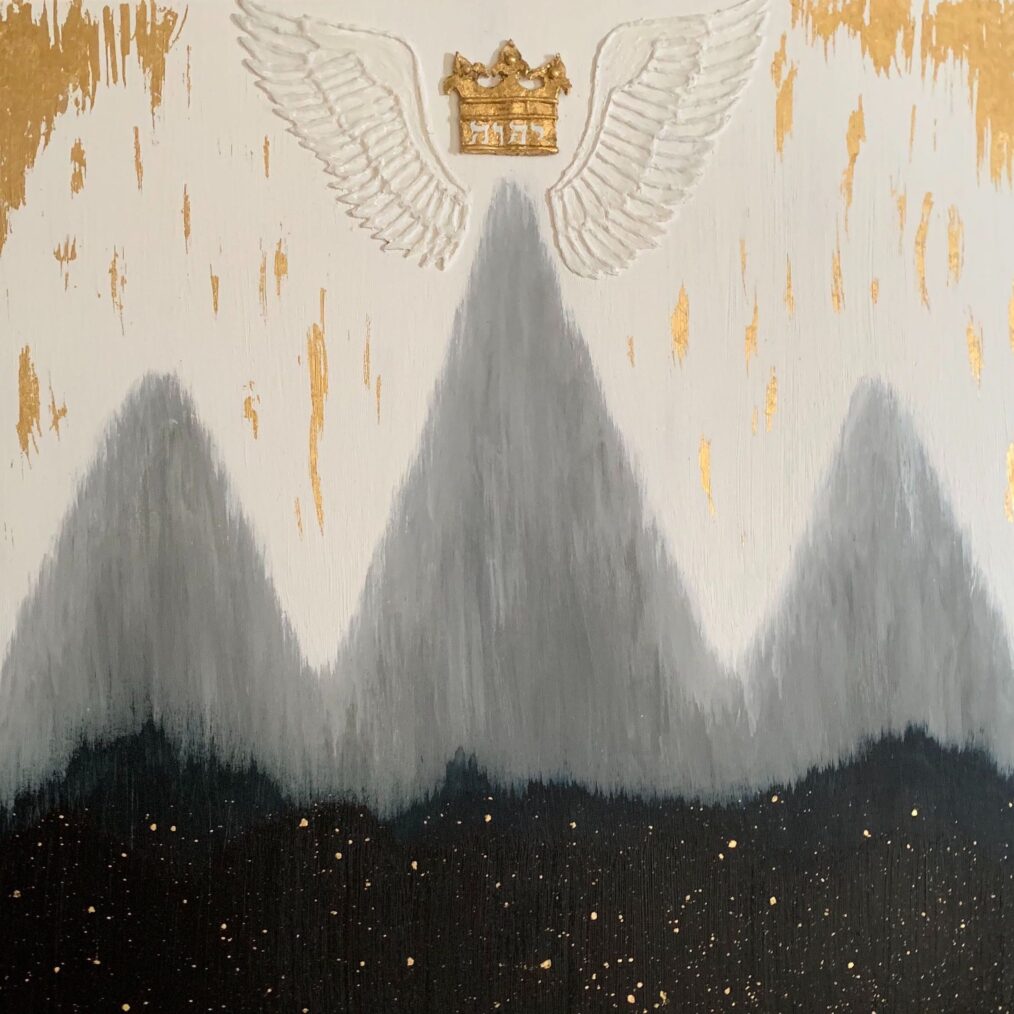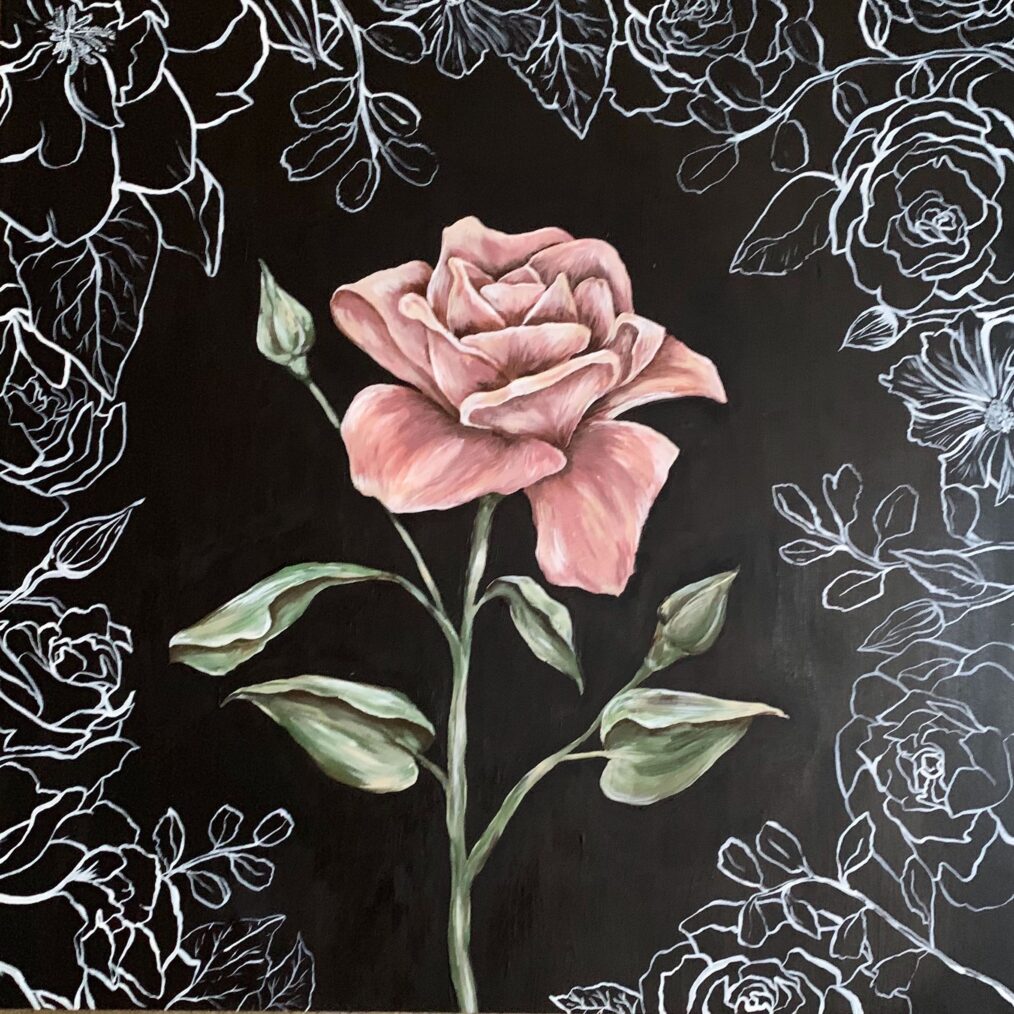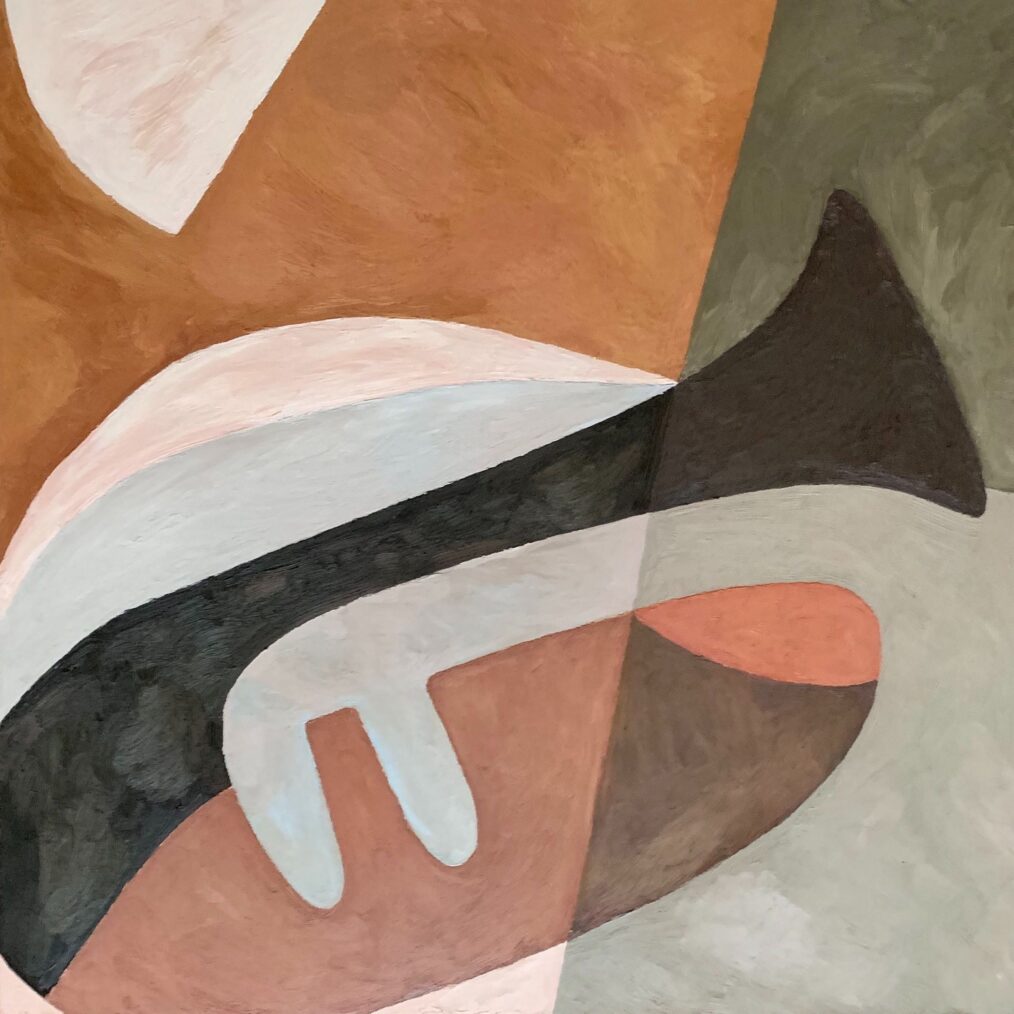As we continue in our journey together through the Advent season, a second practice that can help increase our longing and hunger for God is the discipline of fasting.
“Fasting.” Just hearing the word can make us tighten up. Some of us feel guilt. Others become defensive or even angry. It’s a practice many of us have heard is
probably a good thing and yet few of us engage it with any regularity.
Why is this practice so foreign? Why is it so difficult? Why do we run from it and then justify our avoidance of it? Why can’t we see the gift behind this discipline?
Richard Foster, in
The Celebration of Discipline, reflects, “Why has the giving of money, for example, been unquestionably recognized as an element in Christian devotion and fasting so disputed? Certainly we have as much, if not more, evidence from the Bible for fasting as we have for giving. Perhaps in our affluent society fasting involves a far larger sacrifice than the giving of money.”
While there may be no direct command in the New Testament for the Church to fast, the words of Jesus in Matthew 6 appear to imply that all of His disciples will engage in this practice. “And when you fast, do not look gloomy like the hypocrites, for they disfigure their faces that their fasting may be seen by others. Truly, I say to you, they have received their reward” (verse 16). Notice He says, when you fast. His assumption is that his followers will fast.
Following this assumption, Jesus is teaching us that our
motives are what’s really important when practicing fasting. If we’re looking for praise or some kind of religious trophy, we might receive that—but it’s all we’ll receive. Jesus offers a better way: “But when you fast, anoint your head and wash your face, that your fasting may not be seen by others but by your Father who is in secret. And your Father who sees in secret will reward you” (verses 17-18). He is not saying we must avoid others’ knowledge of our fasting at all costs. The Bible is full of examples of corporate fasting (Acts 13 and 14, Esther 4, 2 Samuel 1, etc.). He is, however, concerned with
why we’re fasting.
He wants our hearts. He wants us to be focused on
Him above all else. He wants to give us a reward that can’t fade or be stolen from us.
So, despite our potentially-mixed bag of motives, we go together before God to engage with this practice. We want to put God first. Or, we
want to want to put God first. We deny ourselves food to discipline our body, soul, and spirit and say that God is more important to us than food—than anything.
Below are a few ideas for best-practices and questions to consider for individuals, households, and Gospel Communities:
INDIVIDUALS
We’re inviting everyone in the church body to practice fasting on Wednesdays during Advent (December 4, 11, and 18). If you missed last week, that’s okay! Set a reminder for this upcoming Wednesday (or Tuesday evening) to join us.
What exactly is fasting? David Mathis defines fasting as “voluntarily going without food—or any other regularly enjoyed, good gift from God–for the sake of some spiritual purpose.” Some people, for medical reasons or otherwise
*, can’t fast from physical food but that doesn’t mean they’re excluded. Many have found that fasting from social media, Netflix, particular activities or foods has shown itself to be a helpful way of intentionally engaging with God. Fasting ultimately is about refraining from one thing that we might engage more intentionally with another, namely God.
Sam Storms comments: “The ironic thing about fasting is that it really isn’t about not eating food. It’s about feeding on the fullness of every divine blessing secured for us in Christ. Fasting tenderizes our hearts to experience the presence of God. It expands the capacity of our souls to hear his voice and be assured of his love and be filled with the fullness of his joy. Let me say it again: Fasting is not primarily about not eating food. It is primarily about feasting on God.”
Take a moment before Wednesday to prayerfully consider how you might engage well with God through this practice. Many will choose to go without food for breakfast and lunch. Others will skip one meal or go the entire 24-hours only consuming water (or maybe a cup of coffee). There isn’t a hard and fast rule here; the end goal is to increase relationship with God and ask Him to increase our desire for Him.
One healthy practice is to use the time you would’ve spent preparing and eating food to actually stop and pray! We can miss the point if we simply work through the lunch hour to keep our minds distracted from our hunger. Use the questions below to guide your time in prayer.
Many of us will feel some negative emotions and attitudes rise when we go without the food that our bodies are used to. This is normal and can actually be a gift from God. It is often being revealed what is inside us all along – weakness, dependence, anger, greed, etc. We often use good gifts like food to cope and cover up our inadequacies without even realizing it. Take these emotions before God in prayer, and give yourself grace for these feelings that certainly don’t seem very “spiritual.”
*A note to those who choose to abstain from something other than food: You may decide that fasting from food is not a good idea because of a medical condition or because you are pregnant or nursing. Others may have an eating disorder or unhealthy relationship with food or body image, and this may not be a practice to try at this time. That’s okay! We’d encourage you to ask yourself before God, “What’s a good gift that I could give up temporarily in order to help train my heart to long for God more than His gifts?” Otherwise, perhaps now is a time to pursue healing and hunger for God in some other way. Don’t hesitate to reach out to your Gospel Community Leaders or a staff member if you need help walking through this.
Questions for individuals to consider or journal about outside the time of silence:
- What are some things I hunger for or look forward to more than God?
- Why am I hesitant or resistant to fasting?
- How might my relationship to food or other good gifts be an indicator of what I long for?
- What do I long for God to do in my heart through fasting?
- What do I long for God to do in my community and my church through fasting?
- What are some negative emotions, attitudes, and feelings that rise in me while fasting? Bring those before God, asking for forgiveness, healing, and dependence on Him.
- Pray through this week’s confession of sin here.
HOUSEHOLDS
For families with small children, this practice may not be possible to engage with all together. Depending on the ages of your children, you may be able to choose one thing to give up together on Wednesdays like dessert or screen-time. Read through the “Individuals” category above and decide if you may be able to cast vision for your whole family to practice a form of fasting together. You may phrase it something like, “We wish we wanted God more than dessert, but usually we don’t. Tonight, we’re choosing to pray and ask Him to be happy with His presence instead of eating dessert, and thank Him that many days we do get to enjoy it.” Again, if possible, spend time praying together in the same time-slot you would have been engaging in whatever activity you’re abstaining from. Use the questions below to guide discussion or prayer time together.
For spouses and housemates, read through the “Individuals” category above and decide if you want to practice fasting together in the same manner. You may choose to keep each other accountable to practicing it (regardless of whether you practice it in the same way). Again, if possible, spend time praying together in the same time-slot you would have been preparing and eating food. Use the questions below to guide discussion or prayer time together.
Questions for kids and families to consider:
- What is fasting?
- Why does it sound hard?
- Why could fasting a good thing?
- What is a good thing we could give up for one day (or half-day) to spend time with God and ask Him to help us love Him more than anything else?
Pray that God would help us want Him more than anything else. He is the best thing for us!
Questions for housemates or spouses to consider:
- What are some things we hunger for or look forward to more than God?
- Why are we hesitant or resistant to fasting?
- How might our relationship to food or other good gifts be an indicator of what we long for?
- How might fasting actually be a good gift for us?
- How can we help each other engage in fasting during Advent?
- What do we want God to do in ourselves, our families, or our households through fasting? Take these answers to God in prayer.
Pray that God would increase our hunger, dependence, and desire for Him in this season.
GOSPEL COMMUNITIES
A few encouragements for this week’s meeting.
Like last week, at the beginning of your time together, set a timer for 2 minutes to engage in silence as a group. Encourage everyone to breathe slowly and think about Psalm 46:10: “Be still, and know that I am God.”
Afterward, read Luke 2:22-38 together and feel free to ask some of the questions below. If time permits, read Acts 13:1-3 or Luke 18:9-14 and discuss these passages.
Because we’re stretching our prayer lives during this season, make sure to prioritize spending time in prayer together when you gather.
If fitting, end your time in a couple minutes of silence as well.
Questions for Gospel Communities
- What is compelling about the life of Anna in Luke 2:36-38?
- What does it mean to worship with fasting and prayer (Luke 2:37)?
- Why is fasting so difficult? Why might you be hesitant or resistant to this practice?
- How might fasting actually be a good gift for us?
- What is your experience with fasting? Has anyone had a positive experience they’d like to share?
- For those who fasted recently, how did it go? How did it affect your soul? Emotions? Attitude?
- Read Acts 13:1-3 and discuss together. What is compelling about this passage?
- Read Luke 18:9-14 and discuss the passage. What is compelling, convicting, or comforting about this passage?
- What would you like to see God do through the practice of fasting in your life?
Spend time praying together that God would increase our hunger for Him as a church, above all other desires. 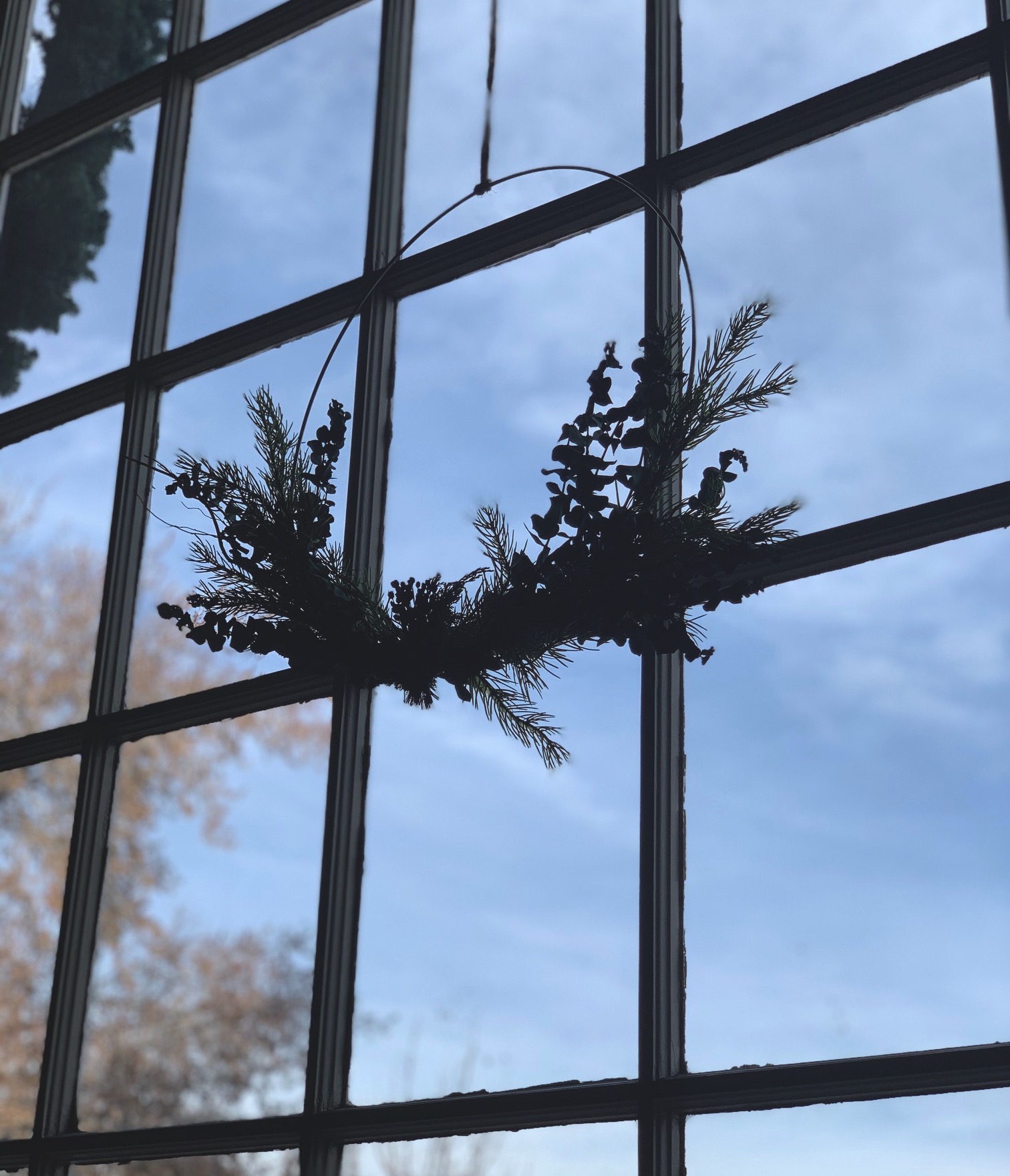
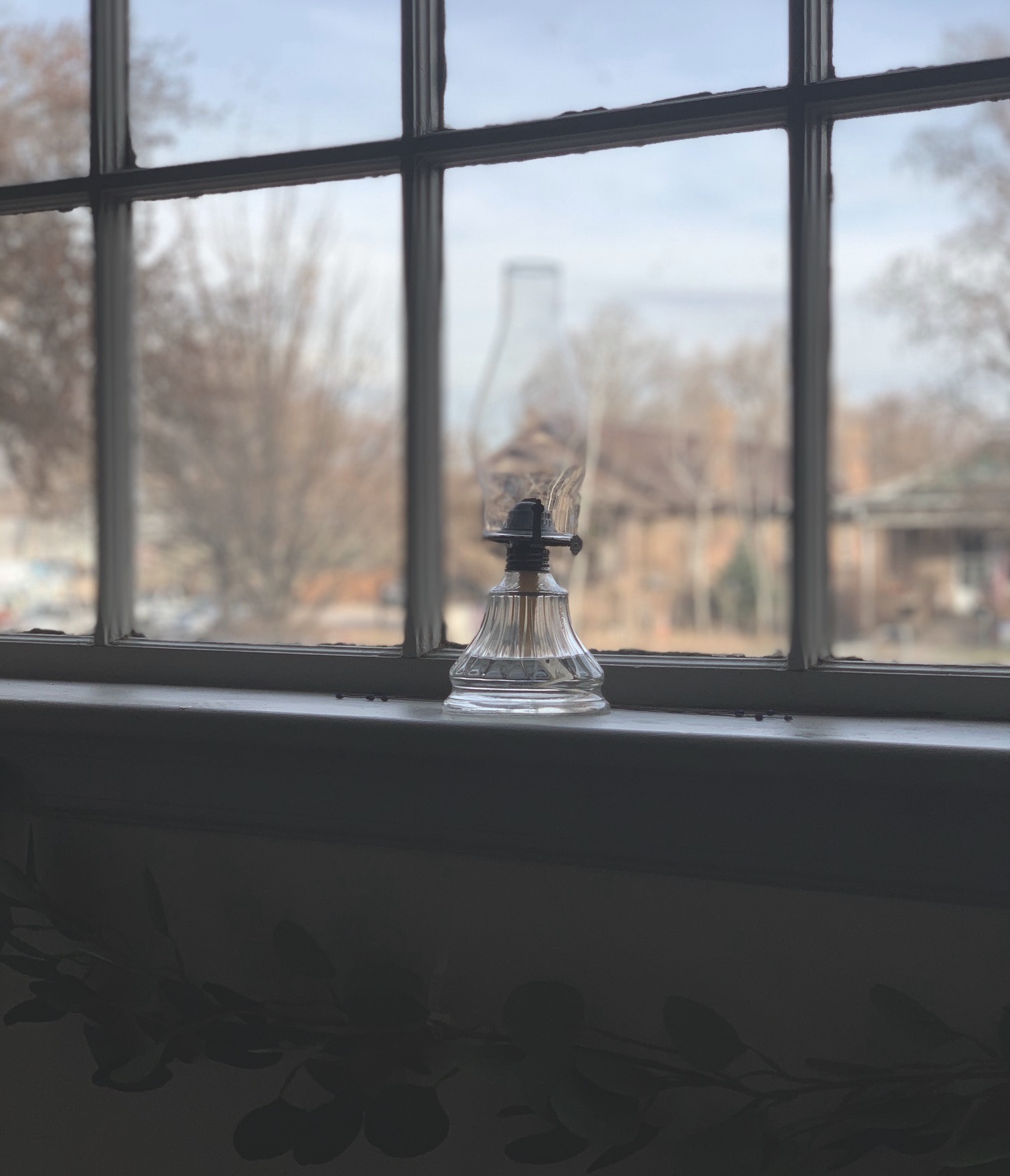

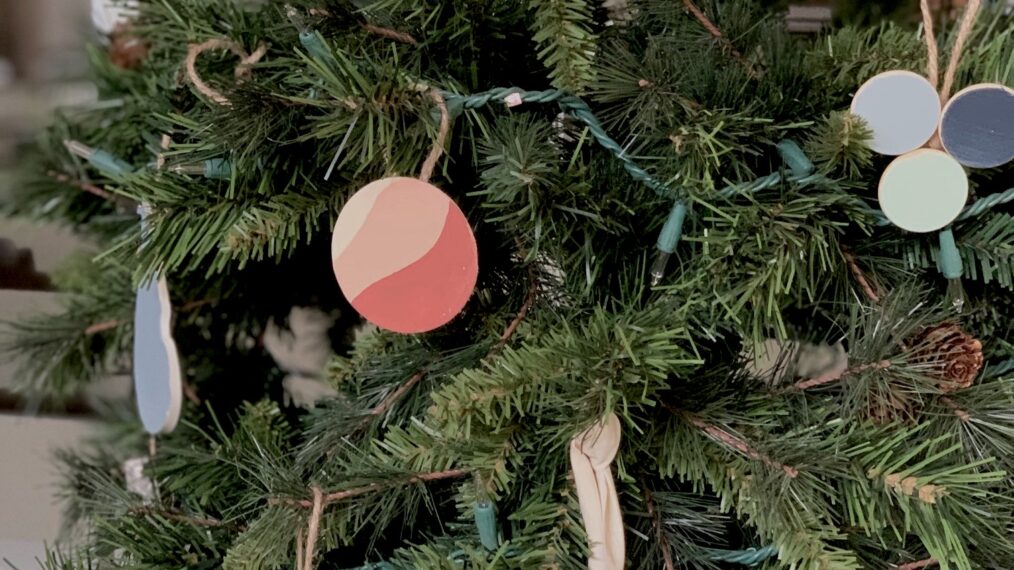
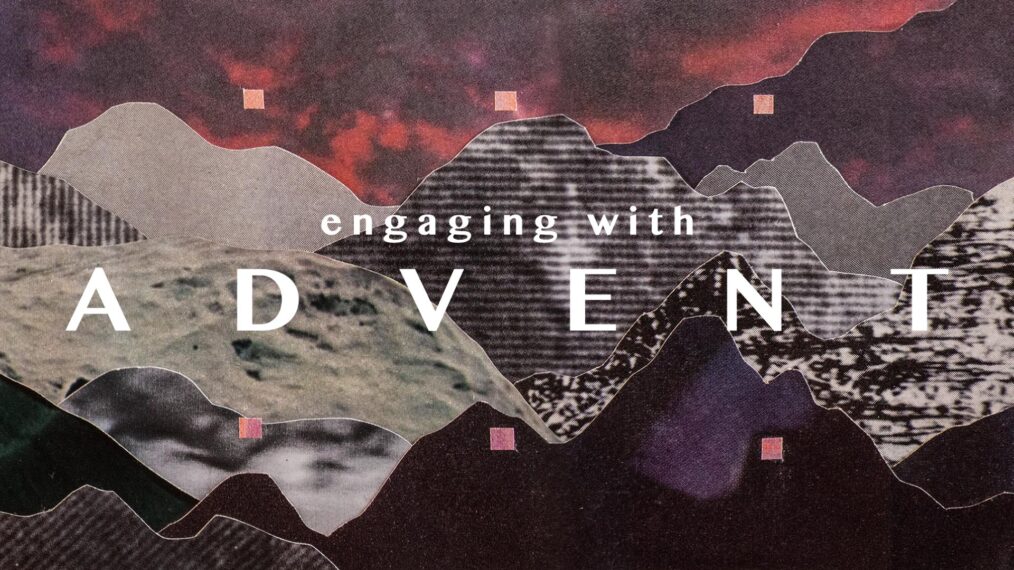
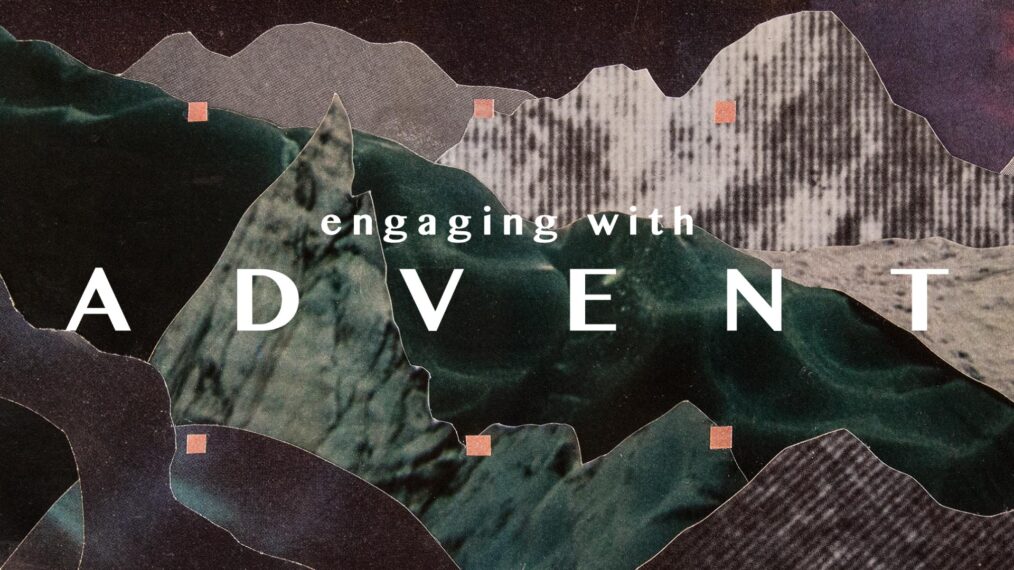
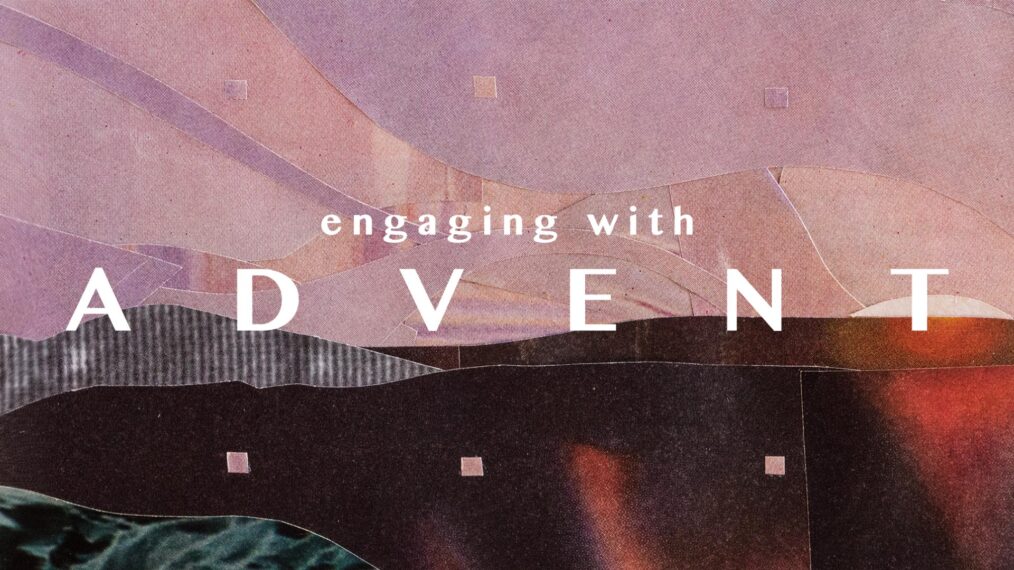
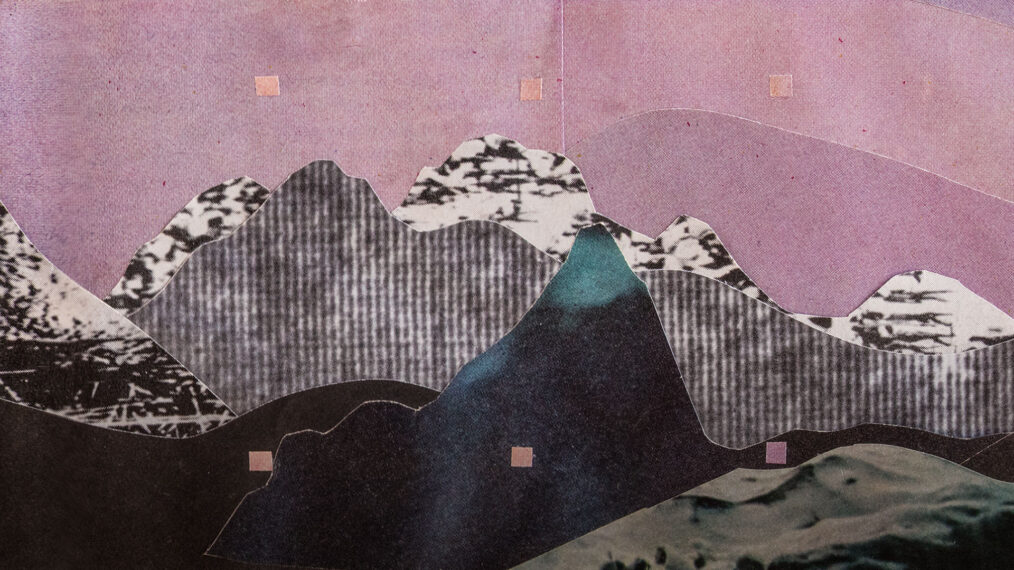






 In another early concept, I envisioned cracks and a shattered pattern getting less and less cracked -the color getting brighter and brighter as the collage progressed. U;timately, I felt like it was—again—less robust of an idea, and cracks don’t really “heal themselves.” It’s difficult to express that idea, even though I liked the graphic potential of it.
In another early concept, I envisioned cracks and a shattered pattern getting less and less cracked -the color getting brighter and brighter as the collage progressed. U;timately, I felt like it was—again—less robust of an idea, and cracks don’t really “heal themselves.” It’s difficult to express that idea, even though I liked the graphic potential of it.
 Lastly, an image of the final collage in-process, before I added the pink squares. The squares sort of came to symbolize markers in the passage of time, little ebeneezers if you will.
Lastly, an image of the final collage in-process, before I added the pink squares. The squares sort of came to symbolize markers in the passage of time, little ebeneezers if you will.
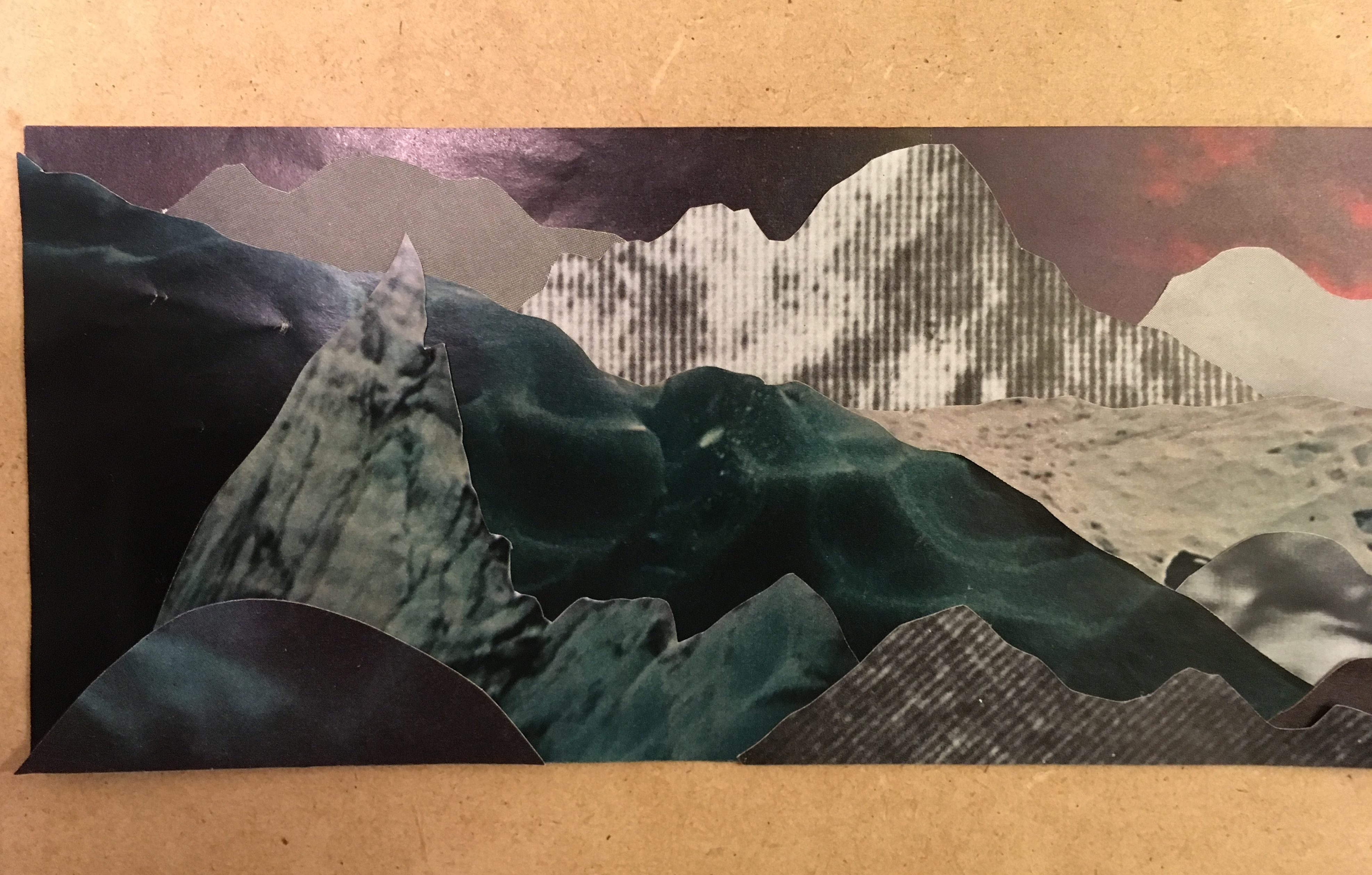

 I’m a husband-in-training to Jerusalem and a gushing father to Selah, both an Air Force brat and veteran, and discipleship is my jam. On the Enneagram, I’m a 7 (Enthusiast) with an 8 wing (Challenger). I love all things related to culture (especially food, travel and language), was a Human Resources Business Partner in my last role, an alumnus of Colorado Christian University, a performing arts junky, and I serve on the board for the Issachar Center for Urban Leadership. Fun Fact: I’ve never experienced a brain freeze!
I’m a husband-in-training to Jerusalem and a gushing father to Selah, both an Air Force brat and veteran, and discipleship is my jam. On the Enneagram, I’m a 7 (Enthusiast) with an 8 wing (Challenger). I love all things related to culture (especially food, travel and language), was a Human Resources Business Partner in my last role, an alumnus of Colorado Christian University, a performing arts junky, and I serve on the board for the Issachar Center for Urban Leadership. Fun Fact: I’ve never experienced a brain freeze! I love journeying through life with my wife and best friend, Erica. We live in the Athmar Park neighborhood and spend our time exploring the mountains and hanging out with friends around Denver. I grew up in a suburb of San Francisco and graduated from Notre Dame. I’m thankful we don’t have to suffer through midwest winters living in Denver. In my previous role, I worked to help patients with chronic illness live healthier lives. I have a passion for building and creating both relationships and organizations that help people grow. My hidden talent is that I’m decent at making pottery and always looking for an excuse to practice and get better.
I love journeying through life with my wife and best friend, Erica. We live in the Athmar Park neighborhood and spend our time exploring the mountains and hanging out with friends around Denver. I grew up in a suburb of San Francisco and graduated from Notre Dame. I’m thankful we don’t have to suffer through midwest winters living in Denver. In my previous role, I worked to help patients with chronic illness live healthier lives. I have a passion for building and creating both relationships and organizations that help people grow. My hidden talent is that I’m decent at making pottery and always looking for an excuse to practice and get better.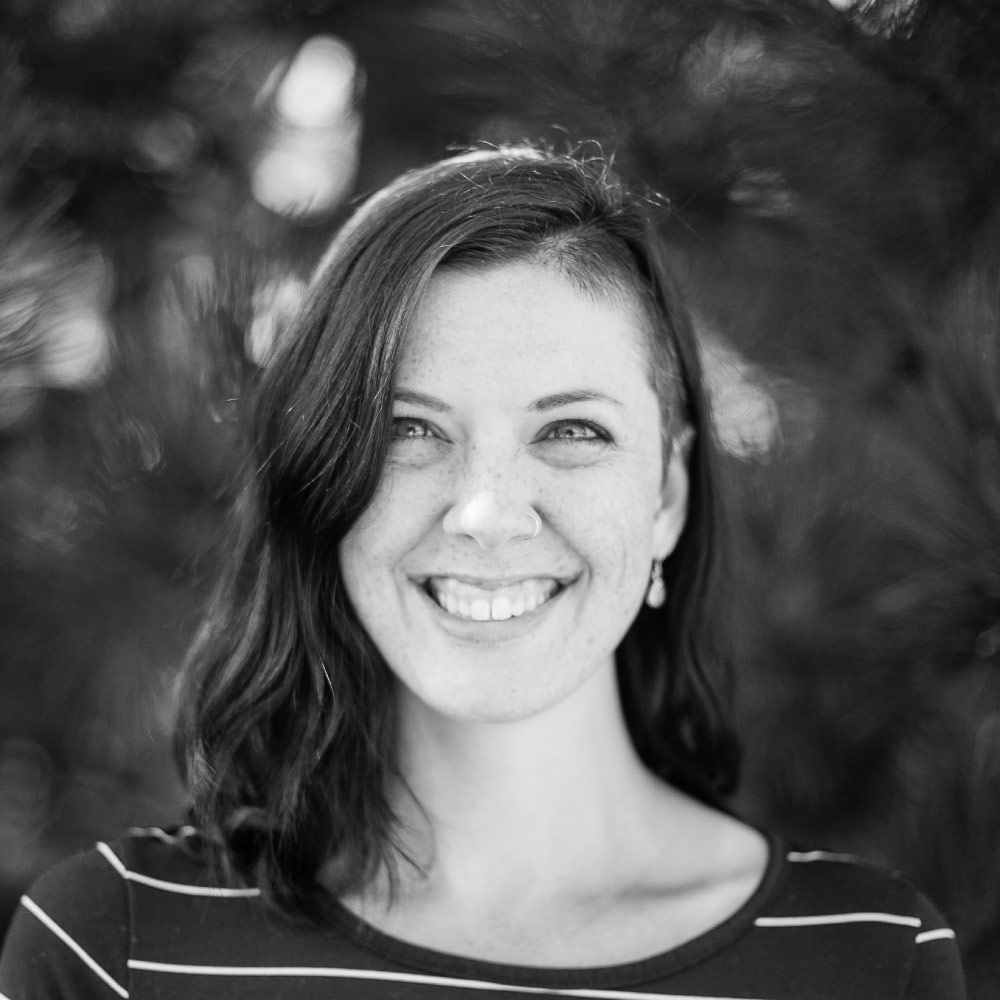 My name is Margie, and I’m the new office manager and Community and Formation admin! I have attended Park since I moved to Denver in June of 2018 and I’m delighted to have a place on staff. A couple of fun facts about me: I was born and raised in Vermont (although I haven’t lived there in a long time), I love to travel internationally, and I can almost always be found with a cup of coffee close at hand. Looking forward to ministering alongside you all!
My name is Margie, and I’m the new office manager and Community and Formation admin! I have attended Park since I moved to Denver in June of 2018 and I’m delighted to have a place on staff. A couple of fun facts about me: I was born and raised in Vermont (although I haven’t lived there in a long time), I love to travel internationally, and I can almost always be found with a cup of coffee close at hand. Looking forward to ministering alongside you all! Hey, my name is Josh and I was hired as the Connection Coordinator at Park and I am pumped to engage new congregants into the life of the Church! When I’m not at work, I’m usually found with a nice book, a cup of coffee and an itch to get outside. I look forward to what is to come!
Hey, my name is Josh and I was hired as the Connection Coordinator at Park and I am pumped to engage new congregants into the life of the Church! When I’m not at work, I’m usually found with a nice book, a cup of coffee and an itch to get outside. I look forward to what is to come! Hey all! My name is Zach Foster and I’m excited to be the new Park Teens Coordinator! I am a Denver native who came to know Jesus while on a mission trip to Juarez, Mexico my freshman year of high school. Ever since, I have been passionate about revealing the beauty of Christ to teenagers just as my youth pastors did for me. I believe that winning our youth to Christ is crucially strategic for growing the Church and making a greater impact for the Kingdom in our city and our world. I am currently pursuing my Masters of Divinity with a concentration in Leadership at Denver Seminary. Important things you should know about me: 1) I love the Denver Broncos, Chipotle, Parks & Rec, and Nacho Libre a little too much. 2) My spirit animal is a combination of Jack Black and Ron Swanson. 3) As a part-time handyman, I can fix anything, except a broken heart. I look forward to getting to know you all in in the coming months and years!
Hey all! My name is Zach Foster and I’m excited to be the new Park Teens Coordinator! I am a Denver native who came to know Jesus while on a mission trip to Juarez, Mexico my freshman year of high school. Ever since, I have been passionate about revealing the beauty of Christ to teenagers just as my youth pastors did for me. I believe that winning our youth to Christ is crucially strategic for growing the Church and making a greater impact for the Kingdom in our city and our world. I am currently pursuing my Masters of Divinity with a concentration in Leadership at Denver Seminary. Important things you should know about me: 1) I love the Denver Broncos, Chipotle, Parks & Rec, and Nacho Libre a little too much. 2) My spirit animal is a combination of Jack Black and Ron Swanson. 3) As a part-time handyman, I can fix anything, except a broken heart. I look forward to getting to know you all in in the coming months and years!